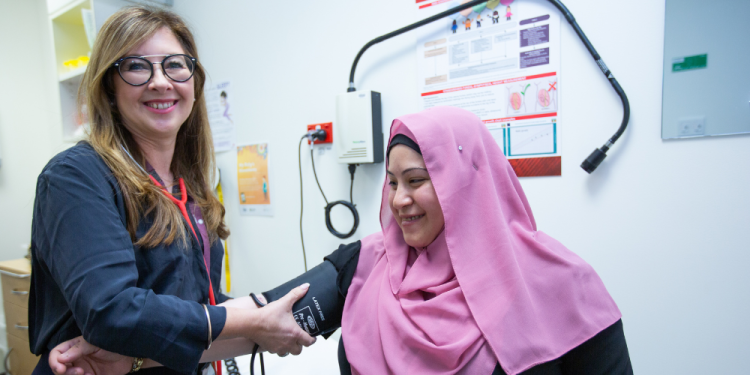
National guidelines are needed on identifying women with disability accessing maternity services in Australia, research at the Women’s has found.
Lead researcher Charlie Benzie said disability documentation is highly varied and fails to ensure the needs of women with disability are met.
“What we need are sensitive and consistent disability questions developed specifically for women accessing maternity care,” she said.
The research team explored how women with a disability were identified when they accessed maternity services; whether there was an association between having a disability and pregnancy outcomes; and the prevalence of women with a disability accessing maternity services across Australia.
An online survey of managers of all public hospitals offering maternity care in Australia found that 71 per cent of services routinely asked women about disability; however there was wide variation in how this was asked.
Sixty-three per cent of services did not have standardised documentation processes and only 13 per cent had specialised disability identification training for staff.
In another part of the study, women in the postnatal wards at the Women’s were asked about their experience with disability identification. Of the 371 women initially surveyed, five per cent self-identified as having a disability. In a second survey focusing on women’s support needs, 16 per cent (of 295 women) identified as needing additional assistance and support. Most women said they preferred to be asked about their disability status routinely and directly, but three in four women were not asked at all.
The study also compared the outcomes of a group of women who attended our Women with Individual Needs (WIN) clinic, with the outcomes of women who gave birth at the Women’s and did not access the WIN clinic.
Women who attended the WIN clinic were more likely to have a caesarean section and give birth before 37 weeks. Their infants were more likely to be low birthweight, be admitted to neonatal intensive care, and receive formula in hospital.
“Our research identifies issues around disability identification and service provision for women within maternity services and highlights the need for changes to be made at a policy level,” Ms Benzie said.
This research was published in Australian and New Zealand Journal of Obstetrics and Gynaecology, Women and Birth.